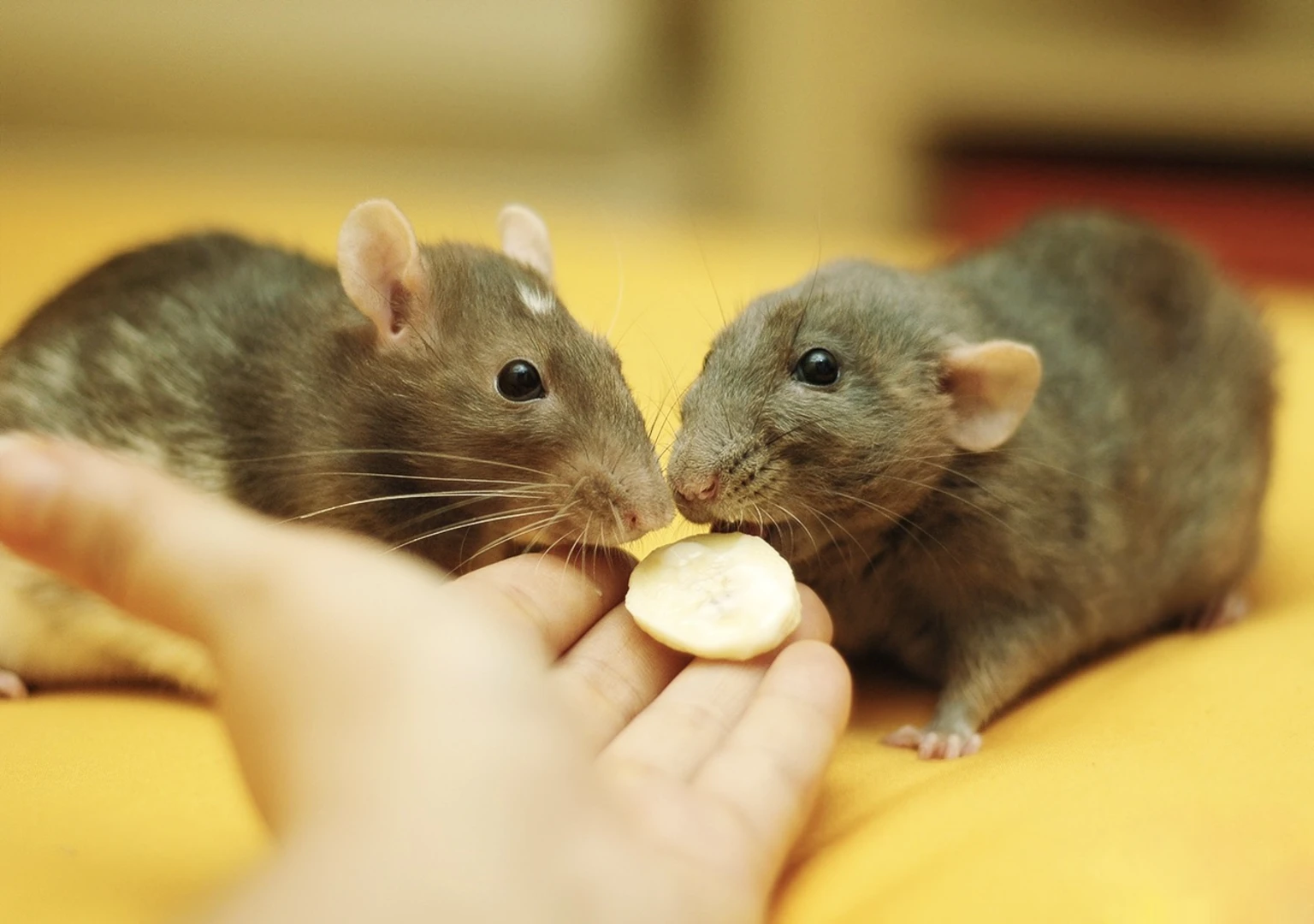How long do rats live?
The answer is simple - definitely too short. The average lifespan of a domesticated rat is about 2 years. Fortunately, recent statistics are improving, and more and more rats are living in good health to two and a half and sometimes even 3 years and longer.
Many factors influence this, namely:
- dynamic development of veterinary medicine (new diagnostic and treatment methods, e.g., for pituitary tumors or heart diseases) and improving knowledge of veterinarians in the treatment of small mammals,
- increased awareness of owners (appropriate amount of exercise in play areas, diversifying the cage and environment, known as enrichment; respecting rat sociality, high-quality food, preventive veterinary check-ups, stool testing, quick response to health problems, and the ability to handle emergencies, e.g., choking).

From time to time, I hear stories like, "when I was young, we had a rat that lived for 7 years." How much truth is in them? Rather little. These are not documented cases that can be confirmed and taken for granted. Apparently, some parents swap out pets for their children to avoid the grief and sadness of losing a beloved companion. As a result, wrong belief that the pet was exceptionally long-lived is perpetuated.

In my work, however, I meet senior rats who, thanks to careful care and cooperation with the veterinarian, live for 3-4 years. This includes both pedigree rats and adopted mutts. Successful surgical procedures such as tumor removals are also performed on older animals.
Pedigree rats that have lived for at least 2 years and 9 months are officially added to the list of seniors. My Kelly (2 years 11 months 4 days) and Fergie (3 years 3 months 16 days) have also joined this group. In the photo above, the girls (Kelly on the left, Fergie on the right) on Fergie's third birthday, and below is a video showing that rat old age can be peaceful and joyful.
It might seem that wild rats are stronger and more resistant to diseases, and therefore live longer. However, in reality, wild rats rarely die of natural causes and seldom reach old age. When they get sick, they become easy targets for predators, which is why they often hide their illnesses for as long as possible. Cases of keeping wild rats as pets show that when there are no predators, they fall ill and sometimes even live shorter than bred rats.